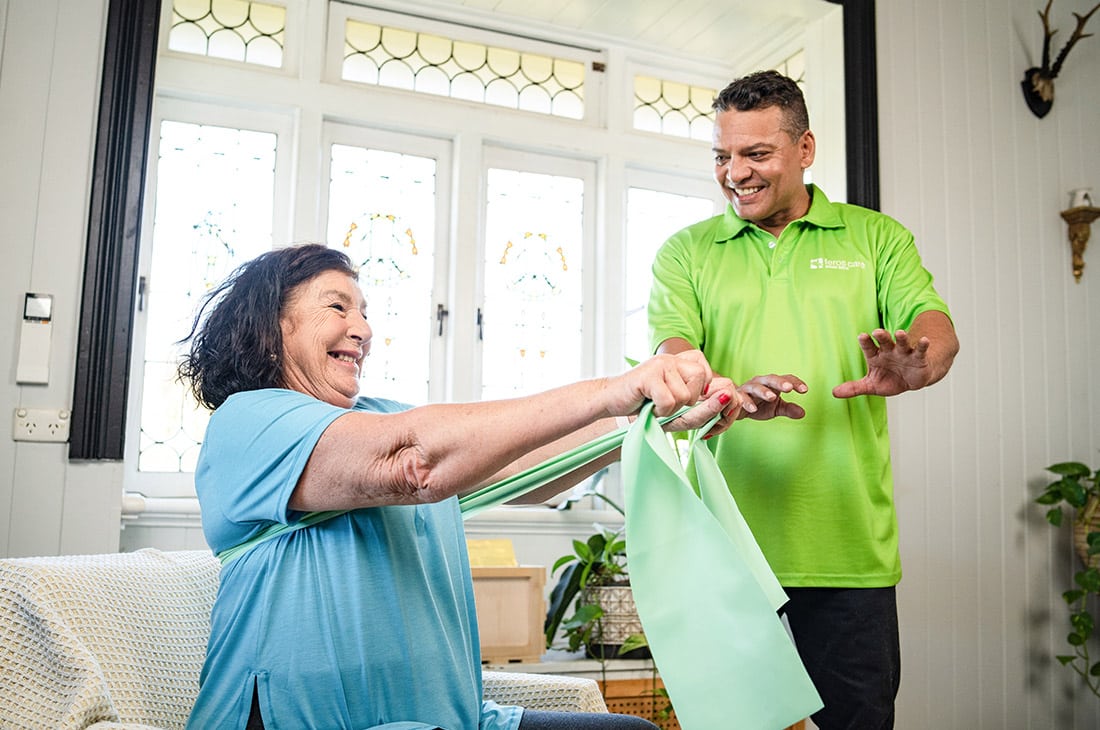Exactly How In Home Care Givers Address the Special Difficulties and Emotional Requirements of Family Members Seeking Support for Their Relatives
In-home caregivers play an essential function in navigating the complexities dealt with by families seeking support for their enjoyed ones. By understanding special household dynamics and offering tailored psychological support, these experts not just address immediate care requirements however also cultivate an environment of count on and open communication. This approach is vital in taking care of the emotional stress typically experienced by family members, as it acknowledges their worries and verifies their experiences. Nevertheless, the subtleties of this partnership prolong beyond plain caregiving; the ramifications for household wellness and caregiving efficacy warrant better exploration.
Comprehending Family Characteristics
Understanding family characteristics is critical for giving efficient at home treatment, as each household runs within an one-of-a-kind collection of interactions and partnerships. These dynamics encompass numerous components, consisting of interaction designs, roles, and power frameworks that affect just how treatment is delivered and received. The caregiver has to recognize these aspects to make certain that care plans straighten with the household's values and expectations.
Different families might exhibit distinct patterns of communication, such as collective approaches or ordered frameworks. In some family members, a main decision-maker may hold considerable influence, while in others, decisions may be much more autonomous. Recognizing these patterns helps caregivers tailor their methods to fit the household's specific needs.
In addition, social histories play a crucial duty in shaping family members dynamics. Caretakers ought to be culturally competent, acknowledging and appreciating varied methods and beliefs that may influence treatment preferences.
Eventually, a detailed understanding of household dynamics promotes boosted communication, promotes trust fund, and improves the caregiver's capability to sustain the family properly. By identifying the complex internet of partnerships and duties, caretakers can produce a supportive environment that advertises well-being for both the individual obtaining treatment and the family in its entirety.
Giving Emotional Support
Supplying emotional support is an important element of in-home care that dramatically enhances the health of both the specific obtaining care and their relative. In the context of caregiving, psychological assistance involves active listening, compassion, and recognition of feelings. Caregivers are trained to acknowledge the psychological battles that families encounter, such as shame, anxiousness, and isolation, and to provide a thoughtful visibility that minimizes these concerns.
By fostering open communication, caretakers create a risk-free area for relative to reveal their problems and fears. This discussion not just encourages psychological release but additionally enhances count on in between the caregiver and the family members. Additionally, caregivers can use useful methods to assist family members manage stress and advertise resilience.

Inevitably, the emotional support offered by in-home caregivers enhances the top quality of life for both customers and their households, advertising a much more caring and understanding caregiving environment. This holistic strategy guarantees that psychological needs are resolved together with physical health factors to consider.
Managing Daily Care Tasks
Taking care of daily treatment tasks is a vital aspect of at home treatment that makes certain people get the support they require to preserve their wellness and independence. Caregivers play an important duty in helping with tasks of everyday living (ADLs), which consist of showering, dressing, grooming, and meal prep work. By tackling these obligations, caretakers aid alleviate the psychological and physical worries that families may encounter while looking after their liked ones.
Along with personal treatment, caretakers are likewise tasked with drug administration, ensuring that customers stick to recommended does and schedules. This oversight is crucial for preserving health and preventing adverse impacts from missed out on or incorrect medications. Caregivers typically assist with movement, providing support for customers moving around their homes, consequently reducing the risk of drops and improving overall safety.

Cultivating Open Interaction
Effective administration of everyday treatment jobs often depends upon the quality of interaction in between caregivers, clients, and their families. Open communication promotes an environment where issues, preferences, and feedback can be easily exchanged, making sure that care is customized to meet private requirements. Caretakers need to prioritize routine check-ins with both clients and their households, helping with discussions that resolve any type of issues or adjustments in care needs.
Utilizing different communication approaches-- such as in person meetings, telephone call, and created updates-- can boost understanding and supply families with assurance. It's crucial for caretakers to proactively pay attention, demonstrating compassion and respect for the psychological landscape of the family. Encouraging questions from member of the family can also help clarify care strategies and enhance the caretaker's commitment to openness.
In addition, keeping open lines of communication allows caregivers to acknowledge and respond without delay to any changes in a customer's wellness status or emotional wellness. This positive approach not just enhances the caregiver-client dynamic but likewise encourages families to get involved proactively in the care process. Inevitably, fostering open communication is important for enhancing the high quality of in-home care and promoting an encouraging ambience for all entailed.
Building Count On and Relationships
Trust fund is the foundation of successful at home treatment, as it establishes a foundation for meaningful partnerships in between caregivers, clients, and their households. Building this depend on requires constant, transparent communication and a real commitment to the well-being of those entailed. Caretakers must show reliability with this link preparation, adherence to care plans, and responsiveness to the needs and choices of customers.
To cultivate trust, caretakers should participate in energetic listening, guaranteeing that households feel listened to and recognized. This includes not just dealing with instant concerns however also preparing for future demands, consequently encouraging family members and boosting their feeling of control. Creating relationship via shared experiences and considerate communications can further solidify these partnerships.
Additionally, caretakers should be educated to identify browse this site and address the psychological complexities encountered by family members. By showing compassion and compassion, they can relieve worries and unpredictabilities, strengthening trust. Routine updates and check-ins with relative can also boost openness, allowing them to really feel involved and informed regarding their enjoyed one's treatment.
Ultimately, developing trust fund and nurturing partnerships in in-home care is a collaborative process that significantly influences the top quality of care offered, promoting an encouraging atmosphere that profits everybody included.
Conclusion
By comprehending family characteristics, giving emotional support, and promoting open interaction, caregivers enhance the total caregiving experience - in home caregivers. Their capability to take care of daily treatment tasks while developing count on and strong connections grows a helpful atmosphere for customers and their families.
Understanding family dynamics is vital for giving reliable in-home care, as each family runs within an one-of-a-kind collection of connections and interactions.Supplying emotional support is a crucial part of in-home treatment that dramatically enhances the wellness of both the specific getting treatment and their family members. By taking on these duties, caregivers assist alleviate the psychological and physical worries that family members may encounter while caring for their enjoyed ones.
Reliable monitoring of day-to-day care jobs typically pivots on the quality of interaction between caregivers, clients, and their family members - home care providers australia.Count on is the foundation of successful in-home care, as it establishes a structure for meaningful connections in between caretakers, customers, and their family members